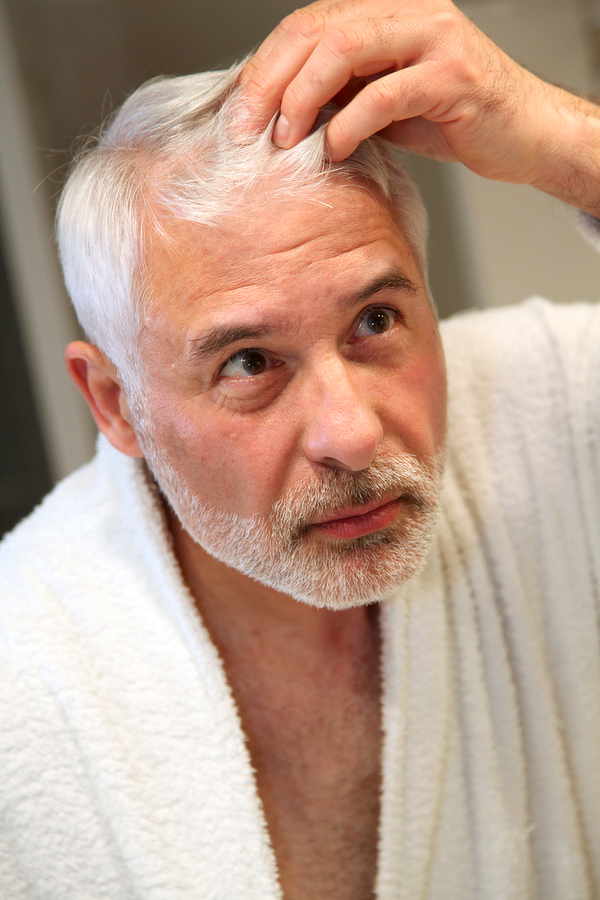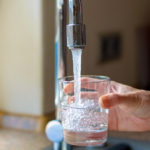By David Blyweiss, M.D., Advanced Natural Wellness
March 19, 2018
- Why is your hair falling out and how can you stop it
- Are these nutrient deficiencies leading to baldness?
- Feed your hair to stop losing those precious strands
Patients with hair that is unhealthy or thinning often ask me if they should take a “hair supplement”. Some of these men and women have already tried these supplements with little success. Others swear by them.
Well, I’m going to give it to you straight.
There are a lot of reasons for hair loss. Stress, illness, medications and other issues are often the cause.
On the other hand, nutritional deficiencies often play a major role in hair loss. As result, many people see great results when they start supplementing with specific nutrients that promote hair growth.Unfortunately, not all hair supplements are created equal.
A lot of them are nothing more than hype… a combination of great marketing and bad science. Buy the wrong one and you won’t see any results.
Then again, maybe you buy the right one… but are eating all of the wrong foods.
MD Exposes the Hidden Danger to Your Eyes

When your eyesight starts to fail, it's a real problem. Suddenly you can't go to the grocery store... you can't get to the doctor if you have an emergency... you can't meet your friends for dinner…
Your "regular" doctor doesn't have time to keep up with the latest research. And the same goes for eye doctors. They go to school to learn how to fit you for glasses and contacts, but have no way of preventing the damage and loss of eyesight that threatens your freedom and independence.
Let me show you something that explains a LOT about how your eyes work.
In my FREE Special Report, I'll show you a HUGE, untapped resource for your eyes that safely and naturally restores clear, effortless eyesight.
Click here to get started...
Regrettably, you can’t fix a poor diet with supplements. In many cases, simply changing your eating habits could be exactly what your hair needs.
So before you go out and spend a bunch of money on expensive supplements, creams, shampoos and other products that promise to re-grow your hair, let’s take a look at a few nutritional deficiencies that could be at the root of your thinning and fragile hair.
Are These Nutrient Deficiencies Leading to Baldness?
Vitamin D deficiency is a huge problem here in the U.S. As much as 75% of the population is deficient. This type of deficiency can result in numerous health issues that are a serious threat to your health.
In addition to other functions, vitamin D plays a significant role in hair follicle cycling. When this growth cycle is disrupted, it can result in hair loss.
In fact, both men and women with both spotty hair loss (alopecia areata) or pattern hair loss have vitamin D levels that are significantly lower than those without these hair conditions. And the more severe the condition, the lower the vitamin D levels.
Since it’s almost impossible to get enough vitamin D from the foods we eat, I recommend vitamin D testing for everyone. If you’re levels are below 40 ng/ml, you can bring your levels up by supplementing with vitamin D3 in the cholecalciferol form.
Iron deficiency isn’t nearly as widespread here in the U.S. as vitamin D deficiency. Still, at last count approximately 10 million Americans fell into the iron deficient category.
And guess what? Iron deficiency is actually a very common cause of hair loss. It’s linked to both male and female pattern hair loss, alopecia areata and hair follicle issues.
But I do have a word of warning. I don’t recommend taking an iron supplement unless you are diagnosed as iron deficient by a medical professional and closely monitored. That’s because if you take too much, it can result in toxicity.
The World's Quickest Solution for Ending Prostate and Urinary Misery
This has recently been revealed to be one of the only real breakthroughs in prostate health.
The seeds of a strange fruit (sometimes called "Chinese Apples") hold powerful phytonutrients that are a revolution in prostate health.
In fact, UCLA and Veterans Administration research have now proved this to be true.
Not only that, but it may be the worlds quickest solution for ending prostate misery.
Simply stated, these phytonutrients represent a huge step beyond beta sitosterol, saw palmetto, and other phytosterols alone.
Simply click HERE if you want to have fast prostate relief...restful, uninterrupted sleep...no more constant "urges to go"...enhanced virility...and optimal prostate support for life.
On the other hand, there are plenty of healthy food sources that are loaded with iron. Many varieties of beans are an exceptionally high in this mineral. Oysters, spinach, beef liver, beef, pumpkin seeds and chicken are also good sources.
Feed Your Hair to Stop Hair Loss
Zinc is another deficiency that is an extensive threat across the U.S. But that doesn’t mean there aren’t millions of people who aren’t getting enough of this mineral.
And it turns out that patients with all types of hair loss have lower zinc concentrations than those without hair loss. However, about two out of every three hair loss patients who supplement with zinc see improvements.
Cooked oysters are one of the foods highest in zinc. Crab and lobster also have appreciable zinc content. But if you’re not a seafood lover, don’t worry. You can also get more zinc into your body by eating grassfed beef or lamb, sesame seeds, pumpkin seeds and lentils.
Omega-3 fatty acids are great for your hair. They work similar to finasteride to inhibit 5-alpha reductase. This is an enzyme that converts testosterone into DHT, which can result in hair loss.
Unfortunately, most people don’t get enough omega-3 fatty acids in their diet. Still, I always recommend choosing wild-caught seafood over other animal proteins as often as possible. Select small, wild-caught fish like mackerel, salmon, herring and trout. Shellfish are good, too.
And by the way. Not only are these seafood delights high in omega-3. They also contain high levels of L-lysine, an amino acid that boosts zinc and iron uptake. So that’s a triple benefit for your hair.
It’s also a good idea to supplement with a premium mercury-free fish oil supplement. Take between 2,000 and 4,000 mg daily.
Another way to stem hair loss due to high DHT levels is with a natural ancient medicinal herb called He Shou Wu (Fo-Ti). This Chinese herb has been used for centuries to treat hair loss. It’s high in antioxidants, and may provide essential nutrients for hair growth and increased scalp circulation. He Shou Wu could potentially even banish gray from the hair you have left!
Last but not least, I recommend investing in a high quality multi-vitamin since evidence suggests that antioxidant vitamins like A, E, C and the B’s also play a role in the health and growth of your hair.
SOURCES:
Banihashemi M, et al. Serum Vitamin D3 Level in Patients with Female Pattern Hair Loss. Int J Trichology. 2016 Jul-Sep; 8(3): 116–120.
Bakry OA, et al. Serum Vitamin D in patients with alopecia areata. Indian Dermatol Online J. 2016 Sep-Oct; 7(5): 371–377.
Miller JL. Iron Deficiency Anemia: A Common and Curable Disease. Cold Spring Harb Perspect Med. 2013 Jul; 3(7): a011866.
Park SY, et al. Iron Plays a Certain Role in Patterned Hair Loss. J Korean Med Sci. 2013 Jun; 28(6): 934–938.
Park H, et al. The Therapeutic Effect and the Changed Serum Zinc Level after Zinc Supplementation in Alopecia Areata Patients Who Had a Low Serum Zinc Level. Ann Dermatol. 2009 May; 21(2): 142–146.
Guo EL, et al. Diet and hair loss: effects of nutrient deficiency and supplement use. Dermatol Pract Concept. 2017 Jan; 7(1): 1–10.
Li Y, et al. Hair Growth Promotion Activity and Its Mechanism of Polygonum multiflorum. Evidence-Based Complementary and Alternative Medicine, vol. 2015, Article ID 517901, 10 pages, 2015.
Thang NH, et al. Polygonum multiflorum root extract as a potential candidate for treatment of early graying hair. J Adv Pharm Technol Res. 2017 Jan-Mar; 8(1): 8–13.






